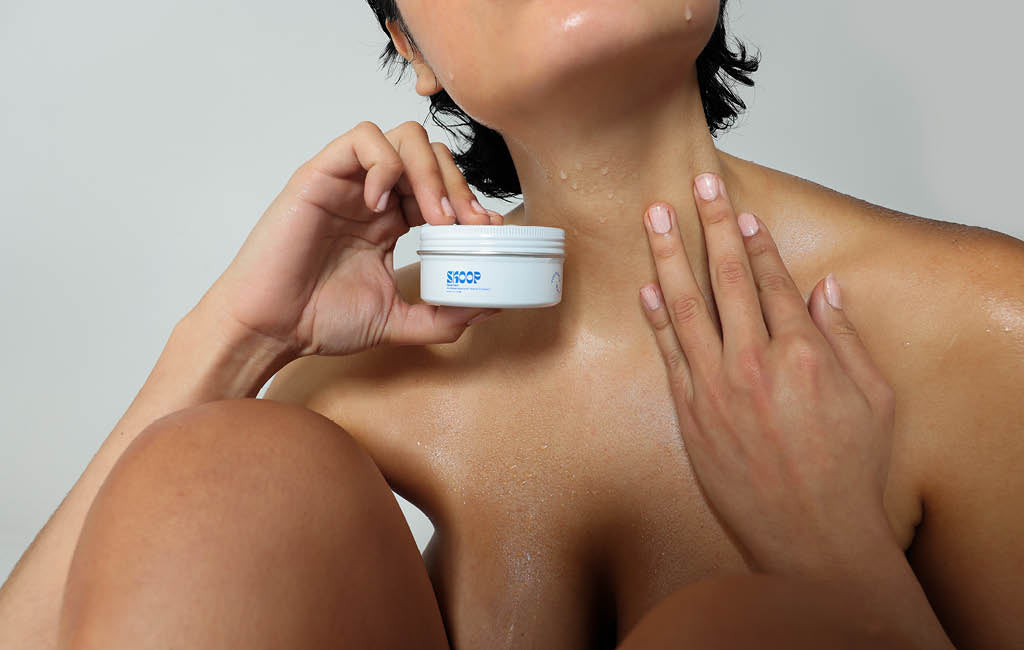

· By Hannah Parker
Don’t Sweat It: Understanding Sweat and Breaking the Stigma
Don’t Sweat It: Understanding Sweat and Breaking the Stigma
Raise your hand if you’re a fellow sweater 🙋 It’s something that I’ve personally faced my whole life. I never really thought of it as a bad thing until I reached my early teens and was met with sweat under my arms, boobs, and thighs—and was made to feel bad about it.
When I googled anything to do with sweat, I was met with the following:
- “How to sweat less”
- “Why does sweat smell so bad?”
- “Why do I sweat so much and so easily?”
- “Tips on how to stop sweating”
Nothing normalised what is truly, well, normal.
I’m talking Reddit threads filled with tips on chub rub solutions and YouTube holes brimming with tutorials. I even remember this one time in high school when a friend taught us to spray aerosol deodorant between our legs to avoid chafing because it was “gross.”
Meanwhile, surfers normalise peeing in their wetsuits to stay warm, dogs drool to stay cool, vultures poop on their legs, and seals literally urinate on their feet to regulate body temperature—and no one says a thing.
Why Do We Sweat? The Science Behind Sweating
So why have we been told our whole lives to be ashamed of sweating? It makes absolutely no sense. It’s a normal bodily function, just like eating, breathing, and sleeping.
We sweat to regulate our body temperature. For example, on a hot summer day at the beach, your body starts to sweat to cool itself down. Why is that something to be disgusted by?! Why are we “grossed out” by sweat patches or even feel the need to comment on them when it’s actually one of the most natural things a body can do?
Common Misconceptions About Sweat: Myths vs. Facts
Does Sweat Really Smell Bad?
Firstly, many people think sweat smells bad. This is false. Sweat itself has no odour, but when it mixes with bacteria on the skin, it can produce unpleasant body odours. This evolutionary response likely signalled potential health issues or social cues to others.
Is Visible Sweat Unattractive?
To some, visible sweat on the skin or clothing can be seen as unattractive or a sign of poor hygiene, but the reality is that it’s a normal bodily function used to cool down the body.
Do Cultural Norms Heavily Influence Our Views on Sweat?
Yes, cultural norms heavily influence our views on sweat. Across different societies, public displays of sweating are often seen as unclean or a marker of low status, leading to widespread stigmas. These ingrained beliefs shape how we perceive and react to something as natural as sweating.
Views On Sweat Is Evolutionary
This is true! From an evolutionary perspective, excessive sweating in certain contexts may have signalled illness or weakness to others, leading to an innate “disgust” response.
Sweat Is Good for You
Believe it or not, it is! Sweat is actually incredibly fascinating. It can hold secrets to your health and habits. It can be the reason people find you attractive. Sweating helped humans thrive by letting us stay active in the sun without overheating, while our predators had to hide in the shade to survive.
How to Normalise Sweating: Changing the Conversation
What can we do about this? We need to continue talking about it, normalising it, and creating a community that focuses on removing the stigma around it. Since sweat is both normal and healthy, our approach to managing sweat-related discomfort should focus on comfort, not shame.
Sweat is natural, essential, and totally nothing to hide. So let’s own it and keep it cool, hotties!
Your friends at SKOOP 💖

